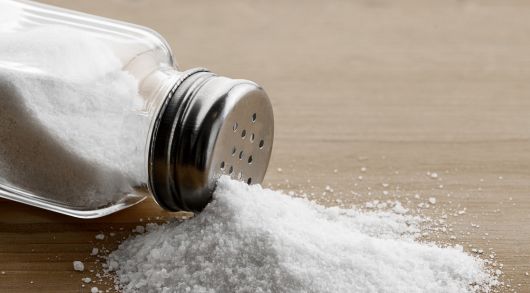As a new mum or mum-to-be, you are likely navigating a sea of information about your baby's nutrition. One question that often pops up is: when to introduce salt to a baby? It's a crucial query, as salt intake can significantly impact your little one's health. In this comprehensive guide, we will explore everything you need to know about salt in your baby's diet.
The importance of salt in a baby's diet
Salt, or sodium chloride, is an essential mineral for our bodies. This mineral helps to maintain your baby’s fluid balance, supports nerve function, and assists in muscle contraction. However, when it comes to babies, less is definitely more.
“Why?”, you may ask.
Believe it or not, your baby's tiny body already gets all the salt it needs from breast milk or formula. This is a perfect food source that provides just the right amount of sodium for your little one's growing body. Adding extra salt to their diet is not necessary and can potentially harm their developing kidneys.
When to introduce salt to baby: The right time
So, when is the right time to start adding a pinch of salt to your baby's food? The general recommendation is to wait until your baby is at least 12 months old before introducing salt to their diet.
The first 6 months
For the first six months of life, your baby should be exclusively breastfed or formula-fed. Both breast milk and infant formula contain the ideal amount of salt for your baby's needs.
6 to 12 months
When you start introducing baby foods around 6 months, it is best to avoid adding salt to your baby's meals. The natural salt content in foods like vegetables, fruits, and meats is sufficient for your baby's nutritional requirements.
After 12 months
Once your baby celebrates their first birthday, you can start adding small amounts of salt to their food. However, it's crucial to keep the quantity minimal and well within the recommended limits.
Related: 1 Year Baby Food Chart
How much salt is safe for babies?
The NHS recommends the following daily salt intake limits for babies and young children:
- 0-6 months: Less than 1g of salt per day (0.4g sodium)
- 7-12 months: 1g of salt per day (0.4g sodium)
- 1-3 years: 2g of salt per day (0.8g sodium)
Note: These limits include the salt naturally present in foods, not just added salt.
Tips for reducing salt in your baby's diet
- Cook from scratch: Homemade baby food allows you to control the salt content.
- Read labels: When buying packaged foods, opt for low-sodium or no-added-salt options.
- Flavour with herbs and spices: Use natural flavourings like cumin, coriander, or mint instead of salt.
- Avoid adult foods: Many adult foods are high in salt and unsuitable for babies.
- Be cautious with cheese: While cheese can be a healthy snack, some varieties are high in salt. Opt for lower-salt options like cottage cheese or cream cheese.
- Separate portions: Cook the family meal without salt, then add salt to the adults' portions after setting aside the baby's portion.
- Gradual introduction: If you are introducing salt after 12 months, do so gradually to allow your baby's taste buds to adjust.
- Use natural flavours: Indian cuisine is rich in spices and herbs. Experiment with mild spices like turmeric, coriander, and cumin to add flavour without salt.
The risks of too much salt for babies
Excessive salt intake can lead to several health issues in babies:
- Kidney strain: A baby's kidneys are still developing and can't handle high amounts of salt.
- High blood pressure: Even in infants, too much salt can raise blood pressure.
- Developing taste preferences: Early exposure to salty foods may lead to a preference for salty tastes later in life.
Frequently asked questions
1. Can I use a pinch of salt in my 8-month-old's khichdi?
It is best to avoid adding salt to your 8-month-old's food. The natural salt in the ingredients is sufficient for their needs.
2. Is it safe to use rock salt (sendha namak) in baby food?
While rock salt is often considered healthier, it is still a form of salt. It's best to avoid all types of salt, including rock salt, until your baby is at least 12 months old.
3. How can I make my baby's food tasty without salt?
Use natural flavour enhancers like lemon juice, mild spices, or mashed fruits to add taste to your baby's food.
4. Are ready-made baby foods safe in terms of salt content?
Most commercial baby foods are formulated to meet babies' nutritional needs. However, always check the label of foods for sodium content.
5. What are some low-sodium first foods for babies?
Fresh fruits, steamed vegetables, unsalted lentils, and homemade cereals are excellent low-sodium options for babies starting solid foods.
Remember, every baby is unique, and it is always best to consult with your paediatrician about your baby's specific nutritional needs. By being mindful of your baby's salt intake, you are setting the foundation for a lifetime of healthy eating habits.

